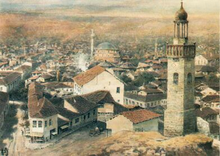Worked out the legs this morning. Jumping jacks, knee lifts, lunges, squats and stretches. It is called Dancer's legs, which, I don't any longer have, but, used to. Anymore I just want to keep moving so the world doesn't pass me by. What about you?
Get Faith
2 Timothy 1:12 "...For I know whom I have believed and am persuaded that He is able to keep what (and whom) I have committed to Him until that Day." I am blessed that my children are good Christians. Aaron is Catholic and has had his children baptized and two of them communed, so far. My daughter as you know, works in the ministry of a children's camp and is in churches much more than the average person. Because I have committed them to the Lord and trust in my Lord Jesus to keep them and theirs safe and loved by Him, I thank God daily.
On this day
2000 The journal tells me that Mom went to church to work the rummage sale. I think they are a losing battle to personal garage sales. I love to go and see all the best of the throw outs offered - clothes (from the past) hats (my personal favorite) unmatched china, jewelry (where you might find a real gem if you look) children's cleaned up, aged out clothes and toys and the ever present kitchen towels with knitted tops to hang on the cupboard or refrigerator! Who doesn't love those?
1573 - Henry of Anjou became the first elected king of Poland. Do they grow pears there?
Sofia Bulgaria
1385,[72] Sofia was seized by the Ottoman Empire in the course of the Bulgarian-Ottoman Wars. Around 1393 it became the seat of newly established Sanjak of Sofia.[73]
The city was occupied by Hungarian forces for a short time in 1443. After the failed crusade of Władysław III of Poland in 1443 towards Sofia, the city's Christian faced persecution and the city became the capital of the Ottoman province (beylerbeylik) of Rumelia for more than four centuries. During that time Sofia was the largest import-export-base in modern-day Bulgaria for the caravan trade with the Republic of Ragusa. In the 15th and 16th century, Sofia was expanded by Ottoman building activity. Public investments in infrastructure, education and local economy brought greater diversity to the city. Amongst others, the population consisted of Muslims, Bulgarian and Greek speaking Orthodox Christians, Armenians, Georgians, Catholic Ragusans, Jews (Romaniote, Ashkenazi and Sephardi), and Romani people.[72]
When it comes to the cityscape, 16th century sources mention eight Friday Mosques, three public libraries, numerous schools, 12 churches, three synagogues, and the largest bedesten (market) of the Balkans.[72] Additionally, there were fountains and hammams (bathhouses). Some prominent churches such as Saint Sofia had been converted into mosques. In total there were 11 big and over 100 small mosques by the 17th century,[74] of which only the Banya Bashi remains as a mosque today.
The town was seized for several weeks by Bulgarian hajduks in 1599.[citation needed] In 1610 the Vatican established the See of Sofia for Catholics of Rumelia, which existed until 1715 when most Catholics had emigrated.[75] The town was the centre of Sofia Eyalet (1826–1864). Nedelya Petkovacreated the first Bulgarian school for women in the city. In 1873 the Ottomans hanged in Sofia the Bulgarian revolutionary Vasil Levski. Very interesting history.
Enjoy the day! Make it memorable!

No comments:
Post a Comment